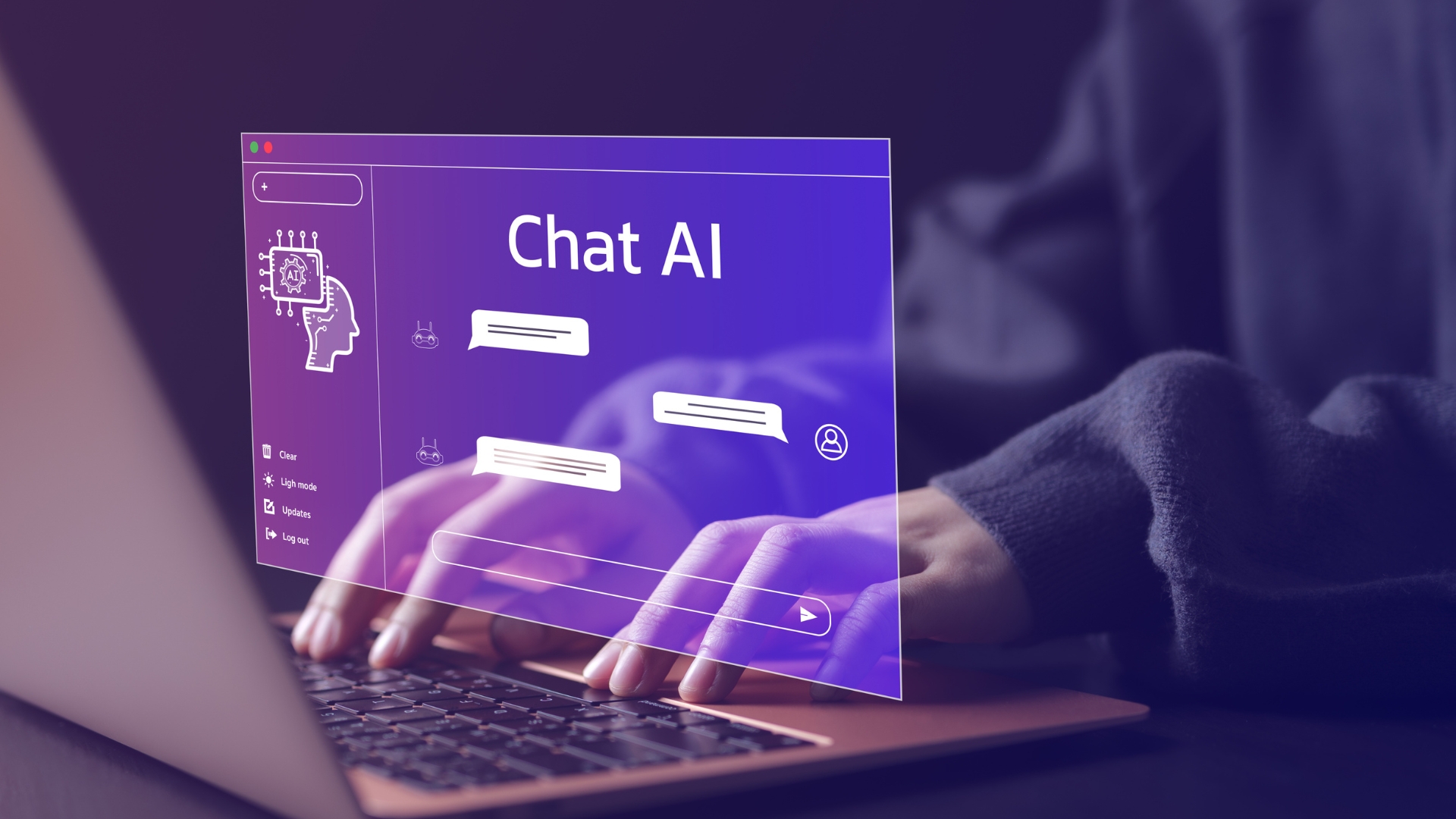Did you know that some companies use AI to scan hundreds of resumes in just a few seconds? What once took hours now happens in moments, thanks to artificial intelligence.
It’s surprising, right? These days, finding the right person for a job isn’t just about interviews and gut feelings. AI is helping companies make smarter hiring choices. And not just that—AI is also helping job seekers connect with the right people and grow their careers faster than before.
Let’s explore this in a simple way. You don’t need to be a tech expert to see how AI is becoming a useful partner in our professional lives.
How AI is Changing the Way We Look for Jobs
Earlier, people had to walk around with printed resumes, check newspapers, or sit for hours going through job boards. But now, things have changed a lot. AI is revolutionising job searching, and the whole job search process has become faster and more efficient.
Let’s say someone is trying to switch careers or find a first job. They can now use AI and explore AI-powered tools on platforms like LinkedIn or other job portals. These tools help improve your resume and cover letter, highlight the right skills and experience, and match you with job openings based on your career goals. If you’re pivoting fields, structuring a career pivot story can help shape your resume before you apply. AI is changing the way people apply for jobs. It checks the job description, scans your profile, and suggests where to apply. AI is changing the way people apply for jobs. It checks the job description, scans your profile, and suggests where to apply. It even helps you use the correct keyword to pass through applicant tracking systems. So, when you send a job application, it doesn’t just disappear into a black hole—it reaches the right hiring manager or employer faster and more accurately.
Thanks to artificial intelligence, searching for a job has become more focused. Whether you’re just starting out or already experienced, AI in job hunting makes things easier and smarter. No wonder people say, AI is revolutionising job searching, and it’s true!
Can AI match candidates with the right jobs better than human recruiters?
Let’s be honest, job hunting can be exhausting, right? Sending resumes, waiting for replies, and never knowing if a real person even saw your application. That’s where AI comes in. Today, many job portals and companies use AI tools to go through thousands of applications in seconds. These tools scan resumes, match keywords, and suggest the best fit for a particular role. It sounds great on paper, but can AI really do this job better than human recruiters?
Here is what Erwin Gutenkunst, the President and founder of Neolithic Materials, says about this:
“AI has improved job matching by processing vast amounts of data quickly, but it still falls short in certain areas. It can analyze resumes, work history, and online profiles to suggest strong candidates, but hiring is more than just finding someone with the right skills. Human recruiters bring insight into personality, ambition, and long-term potential that AI struggles with. While AI can streamline the early stages of hiring, recruiters are still essential for making final decisions that go beyond data points.”
And here’s what Milos Eric, General Manager at OysterLink, says:
“AI is reshaping professional networking and job searches by broadening access to global talent and streamlining recruitment through automation. Platforms like LinkedIn and Indeed have made it easier for employers to discover candidates, yet over-reliance on AI has introduced issues like ghost jobs—listings for non-existent roles that erode trust and waste job seekers’ time.
While AI can match candidates to roles by scanning resumes and identifying keywords, it often misses the nuances of a candidate’s experience. This rigid approach can exclude qualified individuals whose skills aren’t captured by specific buzzwords. In one case, even a senior manager was overlooked due to an automated system’s limitations.”
So yes, AI is useful for shortlisting and sorting, but humans are still important when it comes to understanding people’s real potential.

How does AI-powered networking improve career growth for job seekers?
Now let’s talk about networking. You’ve heard the saying, “It’s not what you know, it’s who you know,” right? Networking plays a big role in building careers. Earlier, people had to attend events or make cold calls. But now, AI helps you find the right people to connect with—just by analyzing your profile and interests.
For example, if you’re into digital marketing, AI can suggest industry experts, hiring managers, or even potential mentors for you to connect with. This saves time and opens doors that you may not even know existed.
According to Erwin Gutenkunst:
“AI-powered networking makes it easier to discover new career opportunities, but it has its limits. These tools can analyze profiles, work history, and industry trends to suggest relevant connections, helping professionals expand their networks faster. Someone looking to transition into a new field might get matched with people in that industry, which can open doors they hadn’t considered. The challenge is that AI relies on patterns, so it tends to suggest connections based on similarities rather than unique opportunities. Building strong professional relationships still requires genuine interaction, shared experiences, and conversations that AI can’t replicate.”
And Milos Eric adds his point of view:
“AI-powered networking improves career growth when balanced with human insight. It can quickly screen applicants and highlight potential opportunities, but the final decisions require the judgment and empathy that only human recruiters can offer. This blend not only increases efficiency but also preserves the essential trust and personal connection in hiring.”
So basically, AI can point you in the right direction, but the real connection still depends on you—how you talk, engage, and build relationships.
What are the limitations of AI-driven job portals?
Now, let’s be real. AI is not perfect. If you’ve applied to a job online and never heard back, you’re not alone. Sometimes, your application may not even reach a human. Many job portals filter resumes based on keywords. If your resume doesn’t include the exact words the AI is looking for, it might just skip over you.
Here’s what Erwin Gutenkunst says about this issue:
“AI-driven job portals can filter thousands of applications, but they often rely too much on specific keywords and rigid criteria. If a candidate doesn’t phrase their skills the right way, they might be overlooked, even if they are a great fit. These systems also struggle with career changes. A marketing professional with strong analytical skills might transition into data analysis, but AI might not recognize the connection. Hiring still requires human oversight to ensure that qualified candidates don’t slip through the cracks.”
And Milos Eric gives us more insight:
“The limitations of AI-driven job portals include their tendency to reduce candidates to mere data points and the risk of perpetuating hiring biases. Relying solely on AI risks creating a cycle where flawed decisions lead to further automation, undermining the overall recruitment process.
At OysterLink, we believe the future of recruiting lies in striking a balance—leveraging the speed and scalability of AI while retaining the human touch necessary to understand the full picture of a candidate’s potential.”
So the takeaway here is simple: don’t depend only on job portals. Make sure your resume is well-written, use the right keywords, but also try to connect with people directly whenever you can.
Can AI Remove Bias in the Hiring Process?
A recent study showed that many resumes get rejected within just 7 seconds of being read, sometimes based on things like the candidate’s name, photo, or address. That’s why the idea of using technology to remove bias has gained so much attention. In fact, AI is revolutionising job searching by bringing fairness and balance into the job hiring world.
In today’s competitive world, everyone wants a fair chance, right? This is where ai in recruitment is really helping. Now, instead of judging someone by personal details, ai algorithms look at real things like skills, experience, and career path. That’s how ai is changing the job market. When you use AI tools during the job application process, they focus only on facts—not feelings. So even if you didn’t go to a famous college, you can still get good job recommendations based on what you’re truly capable of. AI helps people find better opportunities and AI is revolutionising job searching by removing many of the old unfair filters.
Let’s look at how this is changing the game for today’s job seekers:
-
AI scans your resume to use AI to recommend jobs that actually fit
-
It checks industry trends and matches your skills with the right roles
-
It removes human bias in the early stages of screening
-
It focuses on your specific job fit, not background
-
It brings smarter results in job hiring through ai-powered job platforms
But let’s be real—AI works best when used with care. While using AI to help with your job application is great, a human touch is still needed in the final steps like job interviews. So, the best way is to leverage AI without forgetting that some decisions still need people.
All in all, AI is revolutionising job searching in a big way. Whether it’s helping with job matches, improving the job search landscape, or making the application process fair, AI is revolutionising job searching and is changing the game for everyone trying to land their dream job.
The Future of Job Search with AI Tools
Back then, people would flip through newspapers or stick to traditional job boards to find jobs. But today, the scene is changing fast. AI is revolutionising job searching, and it’s clear that the future will look very different from what we’re used to. With the integration of AI in almost everything, the future of job search feels more like using a smart assistant than doing everything on your own.
Now, imagine this: you wake up, and your phone pings—not with a social media message, but with personalized job recommendations just for you. Not only that, but AI chatbots are ready to answer your doubts, and yes, AI is revolutionising job searching, and conducting interviews is slowly becoming a real thing. Many companies use AI to scan resumes, post job ads, and even use AI to suggest jobs based on the job seekers’ skills and past experience. This shows how ai-powered tools are making job hunting more targeted and stress-free. Whether you are switching careers or just starting out, AI can help you stay competitive in the job market.
Here’s how this new world is shaping up for job hunters:
-
AI can match your skills and interests to the right job opportunities
-
You can now use AI as a tool to help you build confidence before interviews
-
Real-time alerts from ai-powered job boards can guide you to jobs based on your needs
-
AI to suggest jobs is helping businesses and job seekers save time
-
Many job seekers must now learn how to harness AI to stay updated
The truth is, AI is revolutionising job searching and has become a big part of how seekers and employers alike interact. With so many evolving job roles, the way people find jobs is clearly shifting. And AI also brings a level of speed and accuracy we’ve never seen before. So, combining AI with human efforts might just be the smartest way forward.
No doubt about it—AI is revolutionising job searching, and it’s not just changing the tools, but also changing the way we think about work, hiring, and careers.
